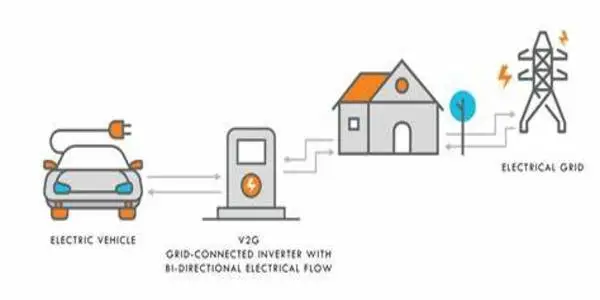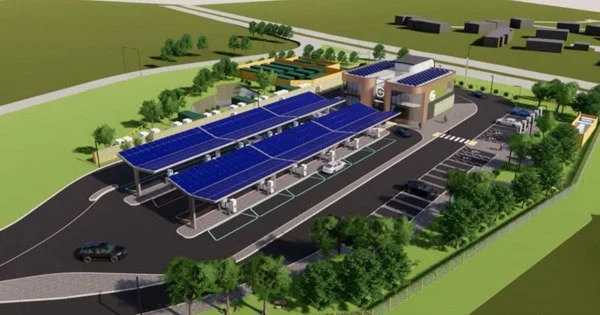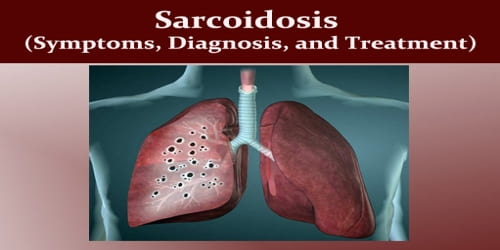Researchers are using idle electric vehicles as mobile generators to assist power overworked and aging electrical systems. After assessing energy consumption on Alberta’s power system during rush hour, the study recommends a novel method for replenishing electrical grids using power provided by fuel cells in trucks.
Researchers at the University of Waterloo are using idle electric vehicles to act as mobile generators, helping to power overworked and aging energy systems. After assessing energy consumption on Alberta’s power system during rush hour, the study recommends a novel method for replenishing electrical grids using power provided by fuel cells in trucks.
“Canada’s power grids need to be upgraded,” said Dr. XiaoYu Wu, lead researcher and a professor in Waterloo’s Department of Mechanical and Mechatronics Engineering.
Hydrogen fuel cells offer advantages over other fuels like batteries which require more investment and pollute more when you dispose of them. Our preliminary findings show that using existing fuel cells in electric vehicles of the future can decrease costs on the grid.
Dr. XiaoYu Wu
“However, Alberta’s power grid costs far more than other jurisdictions. The majority of power is generated by fossil fuels, which produce large carbon emissions. The requirement to quickly alter generators to meet shifting demand is one of the reasons why grid prices are unstable and erratic. This opens up the possibility of sustainable energy storage even out the demand and price of electricity.”
The team’s research is based on vehicle-to-grid technology, which uses specialized chargers to transfer unused energy from electric vehicle (EV) batteries back to the power grid for storage. This electricity in storage can help the grid during weather-related disruptions or lower demand during peak hours.
The research proposes paying drivers of fuel cell-powered trucks to rest during rush hour and while resting, to plug into a hydrogen refueling station or pipeline and use their trucks’ idle fuel cells as generators to provide electricity to the grid. The result is less vehicle traffic on highways, reduced energy use at peak times, and cleaner ways to store energy.

Waterloo graduate student Daniel Ding developed a mathematical model to simulate the operation, then used software to analyze and model the feasibility and potential of hydrogen fuel cell-powered electric vehicles to balance the grid load and decrease the peak price and carbon intensity.
“Hydrogen fuel cells offer advantages over other fuels like batteries which require more investment and pollute more when you dispose of them,” Ding said. “Our preliminary findings show that using existing fuel cells in electric vehicles of the future can decrease costs on the grid.”
This energy storage system has applications beyond trucks. Heavy-duty equipment and trains, such as switcher locomotives, which are normally idle until called upon to alter train routes, may also be early adopters.
“With the increasing demand to decarbonize heavy-duty vehicles, the fuel cell electric vehicle fleet is expected to expand rapidly,” Wu added. “Connecting these trucks to the grid for the peak-shifting purpose may provide economic incentives for adopting hydrogen fuel cell electric vehicles and help facilitate the emergence of a large-scale hydrogen economy.”
The researchers’ next steps are to test these preliminary findings in the lab and in the field to determine their real-world relevance.















